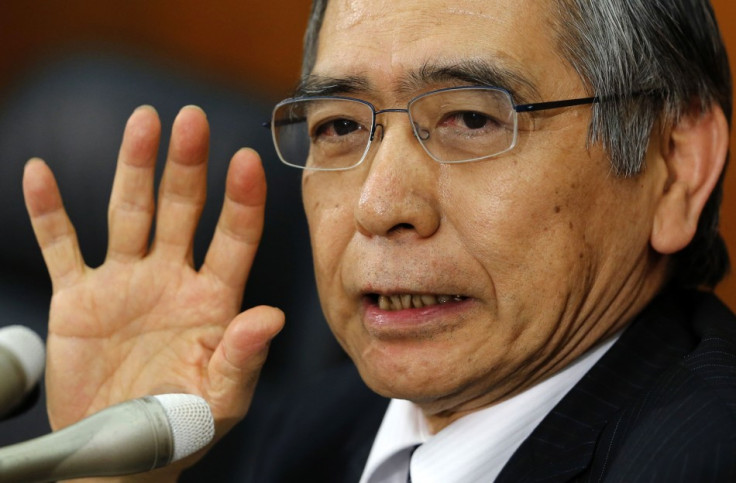BoJ's New Governor Signals Bond Purchase Plans to Achieve 2% Inflation
The central bank will meet for a policy review on 3 and 4 April

Bank of Japan's new governor Haruhiko Kuroda has said that the central bank may seek to purchase five-year or longer term government bonds, hinting at potential shifts in the central bank's monetary policy.
Addressing a parliamentary session, Kuroda said that BoJ will consider all possible options and reaffirmed his commitment to meeting the recently-hiked inflation goal.
"Achieving the 2 percent inflation target in two years is something that I have in my mind," the former ADB chief said, adding that the central bank may consider eliminating a rule that restricts the scale of asset purchase, reports Bloomberg.
Kuroda further added that BoJ could also look at purchase of riskier assets as an option, but final decisions on these matters will be taken by its nine-member board. The central bank is scheduled to hold its next policy meet on 3 and 4 April.
"Quantitative easing has a certain effect [on the economy] but we shouldn't rely on that effect alone," he said, noting that assets that help to bring down borrowing costs and risk premiums should be a priority, according to a Reuters report.
"The BOJ will seek to expand its balance sheet by purchasing longer-dated assets. It will diversify its asset purchases to push down yields across the curve".
Kuroda, who took over the reins from Masaaki Shirakawa last week, was selected by Japanese Prime Minister Shinzo Abe considering his support for aggressive stimulus measures. Comments from him have lately been in focus as analysts speculated on potential policy easing measures from the central bank.
Hopes of bold economy-boosting measures from the central bank had weighed on the yen of late. The dollar climbed to its highest level in over four years against the Japanese currency earlier this month, topping the 96 yen mark.
According to a Reuters report that cited sources close to the matter, BoJ might consider an overhaul of its policy framework at the next policy meet.
© Copyright IBTimes 2025. All rights reserved.





















